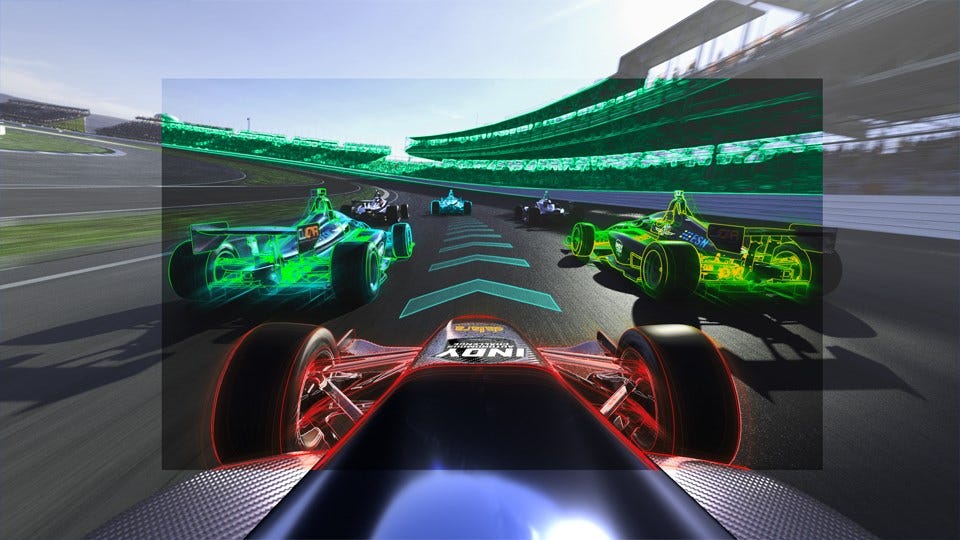Teams Set for Indy Autonomous Challenge
 Rendering of the test car for the Indy Autonomous Challenge at IMS
Rendering of the test car for the Indy Autonomous Challenge at IMS
Subscriber Benefit
As a subscriber you can listen to articles at work, in the car, or while you work out. Subscribe NowThe organizers of the Indy Autonomous Challenge say more than three dozen universities from around the world will take part in the $1.5 million prize competition. The teams will compete to program autonomous Dallara racecars which will be used in the world’s first autonomous head-to-head race at the Indianapolis Motor Speedway in October 2021.
Indianapolis-based Energy Systems Network and IMS says 31 teams from 37 universities will compete in the event. ESN says the primary goal of the challenge is to advance technology that can boost the commercialization of fully-autonomous vehicles, as well as deployments of advanced driver-assistance systems.
“This is an extraordinary challenge, calling on the best and brightest of our university students and faculty worldwide to engineer software that will have a significant impact on the future of all classes of transportation,” said Paul Mitchell, chief executive officer of ESN. “The diversity of the teams, representing 10 countries on four continents, shows the brilliance and ambition of our young people around the world.”
Plans for the Indy Autonomous Challenge were first announced last November. The two-year competition will culminate with the race, but will also include a series of hackathons and a simulated race, which will award $150,000 to the winning team.
The final race will award $1 million, $250,000 and $50,000 to the first, second and third-place finishers, respectively.
“Testing technology for next generation vehicles is in our DNA, so the Indy Autonomous Challenge showcases our continued presence as a catalyst and proving ground for motorsport and transportation innovation,” said IMS President Doug Boles. “We are proud to provide the racing world’s biggest stage for the first head-to-head autonomous race in history, where these university teams will push the limits of performance and safety on the famed IMS oval—leading to safer and better cars on the highway.”
In December, organizers unveiled conceptual designs for the IL-15 Indy Lights chassis that the teams will program to run autonomously. The cars are being developed by Dallara, Energy Systems Network and the Clemson University International Center for Automotive Research.
The universities registered for the IAC include:
- Alabama (2): Auburn Univ.; Univ. of Alabama
- Austria: Graz Univ. of Technology
- California (2): UC Berkeley; California Polytechnic State Univ. (Cal Poly)
- Canada: Univ. of Waterloo
- Colorado: Colorado State Univ.
- Florida (2): Embry Riddle Aeronautical Univ.; Univ. of Florida
- Georgia: Kennesaw State Univ.
- Germany (2): Karlsruhe Institute of Technology; Technical Univ. of Munich
- Hawaii: Univ. of Hawaii
- India (2): Indian Institute of Technology Madras; Amrita Vishwa Vidyapeetham
- Indiana (2): Indiana Univ.-Purdue Univ. (IUPUI).; Purdue Univ.
- Israel: Ariel Univ.
- Italy (3): Univ. of Pisa; Univ. of Modena; Politecnico di Milano
- Massachusetts: Massachusetts Institute of Technology (MIT)
- Michigan (3) Michigan State Univ.; Western Michigan Univ.; Univ. of Michigan-Dearborn
- New York (2): Rochester Institute of Technology (RIT); U.S. Military Academy (West Point)
- North Carolina: Univ. of North Carolina at Chapel Hill
- Pennsylvania: Univ. of Pittsburgh
- Poland (2): Polish Academy of Sciences; Warsaw Univ. of Technology
- South Korea (2): Kookmin Univ.; Korea Advanced Institute of Science & Technology
- Switzerland: Eth Zurich
- Texas: Texas A&M Univ.
- Virginia: Univ. of Virginia
- Wisconsin: Univ. of Wisconsin-Madison
